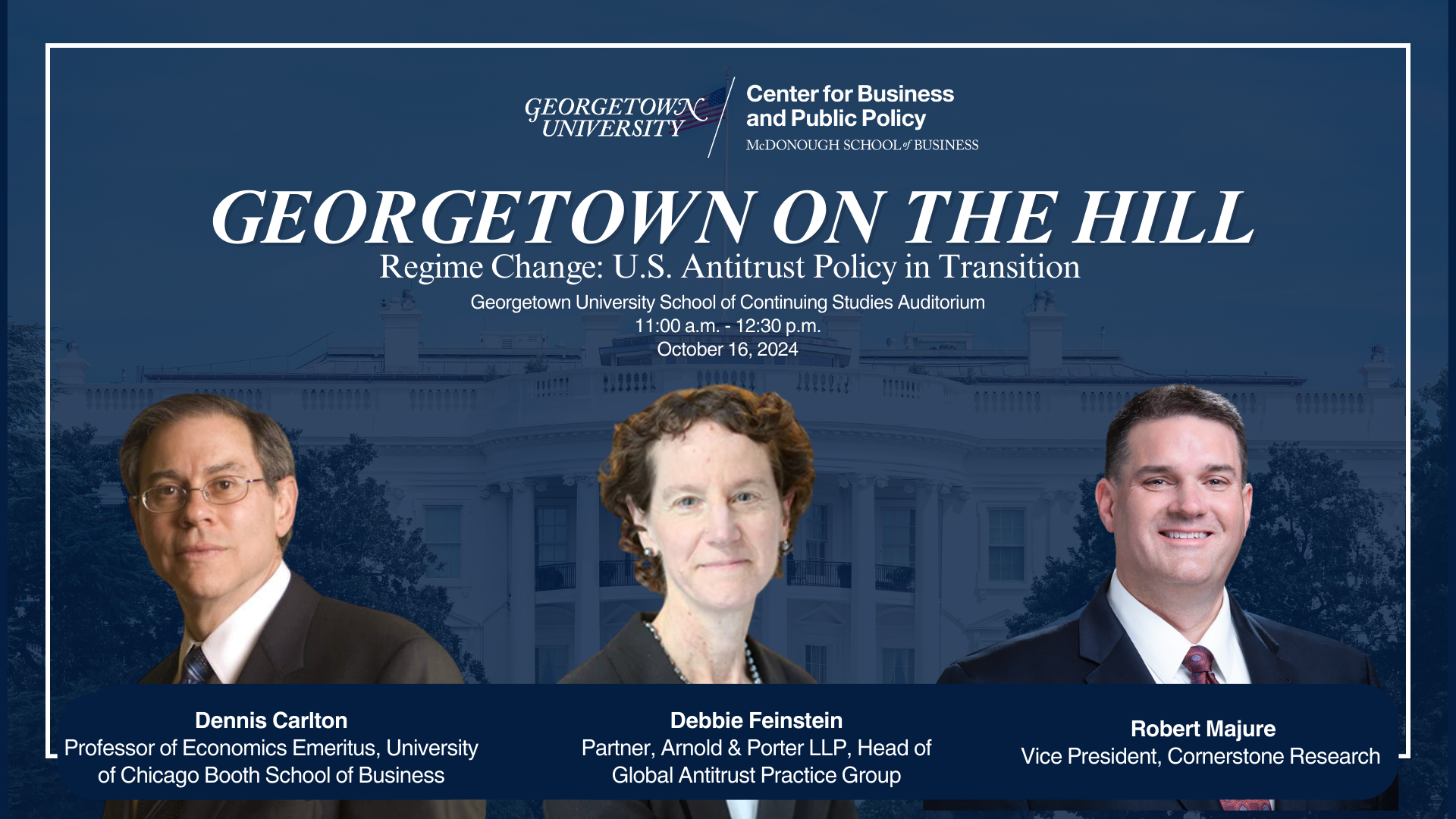Georgetown on the Hill Explores Antitrust Policy Ahead of Election

Posted in News | Tagged Events - Digital Economy, Georgetown on the Hill, News - Digital Economy
At the most recent Georgetown on the Hill event, hosted in Georgetown’s School of Continuing Studies and live-streamed globally, Professor John Mayo of the McDonough School of Business welcomed an audience to discuss the evolution and future of antitrust policy in light of the upcoming U.S. election. The event, organized by the Georgetown Center for Business and Public Policy, brought together top experts in the field: Dennis Carlton (Professor, Chicago Booth School of Business), Debbie Feinstein (Head of Antitrust Practice & Partner, Arnold & Porter), and Bob Majure (VP, Cornerstone Research) with Georgetown’s own Mark Whitener moderating.
The panel delved into the Biden administration’s aggressive antitrust agenda, evaluating its impact and the potential legacy it may leave behind. Dennis Carlton highlighted concerns about the administration’s departure from traditional economic principles, stating, “When you prioritize case law over economics, you risk imposing more costs than benefits, especially in an area as nuanced as antitrust.”
The discussion covered the administration’s focus on redefining antitrust policy through high-profile cases and new merger guidelines, questioning whether these moves have had the intended impact. Debbie Feinstein reflected on the administration’s approach to enforcement, noting, “While they’ve certainly succeeded in raising public awareness about antitrust, their reluctance to pursue remedies rather than litigation could ultimately undermine their goals.”
The panelists also considered the future direction of antitrust enforcement, noting the bipartisan populist appeal of cracking down on large tech companies. Bob Majure emphasized the populist appeal of antitrust action against big tech companies, saying, “If we use antitrust as a lever to punish companies rather than promote competition, we risk stalling innovation and slowing economic growth.” They stressed the importance of balancing policy objectives while avoiding overreach that could stifle competition.
Following the panel, in-person attendees enjoyed lunch in the atrium, where they continued the conversation informally with the experts. If you missed the panel this time, you can view the full panel below. We hope to see you at the next one!
Video link: https://www.youtube.com/live/OFFWIEdBmYI?si=kned40sTcQEAM_xu
